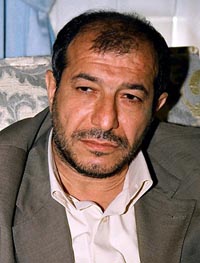New missile capable of reaching Israel manufactured in Iran

Iran announced that it had manufactured a new missile with a range of 2,000 kilometers (1,200 miles) capable of reaching Israel and U.S. bases in the Mideast , the official news agency IRNA said Tuesday.
Iran's Defense Minister Gen. Mostafa Mohammad Najjar said the Ashoura missile was produced by factories affiliated with the ministry, according to IRNA. He did not say whether Iran has test fired the missile or has plans to do so.
Ashoura means "the tenth day" in Farsi, a sacred reference among Shiite Muslims to the martyrdom of the third imam.
Analysts believe much of Iran's military production has benefited from assistance from Russia, China and other countries, but many of their weapons development claims have not been independently verified.
Iran launched an arms development program during its war with Iraq to compensate for a U.S. weapons embargo. Since 1992, Iran has reportedly produced its own jets, torpedoes, radar-avoiding missiles, tanks and armored personnel carriers.
Recent weapons development has been motivated by Iran's standoff with the U.S. over its controversial nuclear program, which Washington claims is a cover for weapons development - a charge Tehran denies.
Iran is known to possess a medium-range ballistic missile known as the Shahab-3, which means "shooting star" in Farsi, with a range of at least 1,300 kilometers (800 miles). In 2005, Iranian officials said they had improved the range of the Shahab-3 to 2,000 kilometers (1,200 miles), equal to the new missile announced Tuesday.
Najjar did not elaborate about the differences between the Ashoura missile and the Shahab-3 missile.
In September during a military parade, Iran introduced the Ghadr missile, which has a range of 1,800 kilometers (1,119 miles).
Experts also believe Iran is developing the Shahab-4 missile, thought to have a range between 2,000 and 3,000 kilometers (1,200-1,900 miles), that would enable it to hit much of Europe.
In Israel, there was no official reaction to the Tehran statement. But missile expert Uzi Rubin, formerly head of the Arrow anti-missile project in Israel's Ministry of Defense, said the announcement had long been expected.
Rubin said Israel is already in the range of other Iranian missiles and that "the people who need to be really worried about the new missile are in Europe."
While it marks a "technological jump," Rubin said he doubted it was operational, since a testing of the missile would likely have been picked up by U.S. intelligence. "They are apparently at the initial stages," he said. "The system is not yet operational, but it doesn't mean that it can't be."
On other military topics, IRNA on Tuesday carried a statement by the elite Revolutionary Guard chief acknowledging that an eventual U.S. strike on the Islamic country could damage its infrastructure.
"Imaginable danger from the enemy is the threat to military and nonmilitary facilities, including to infrastructure," it quoted Mohammad Ali Jafari as saying during a conference on civil defense.
Jafari, the Guards chief, did not specifically name the U.S., but "enemy" is shorthand for America with Iranian officials.
Jafari said the "enemy does not dare launch a full-fledged war against Iran" and stressed that improvements in civil defense would have a preventive role in case of such a strike.
Other than proclaiming Iran's strength, Iranian officials rarely speak publicly about the ramifications of a military conflict with the U.S.
Washington has persisted it is pursuing diplomatic options with Tehran for now, but has not ruled out military action as a way to halt the country's nuclear program.
Subscribe to Pravda.Ru Telegram channel, Facebook, RSS!




